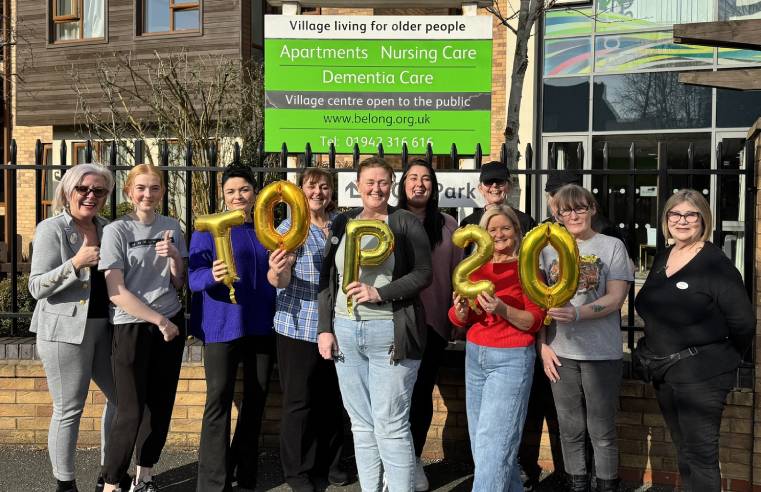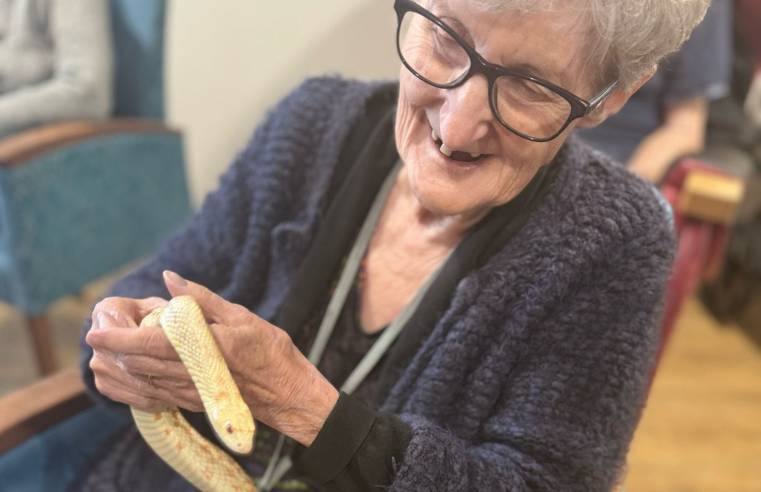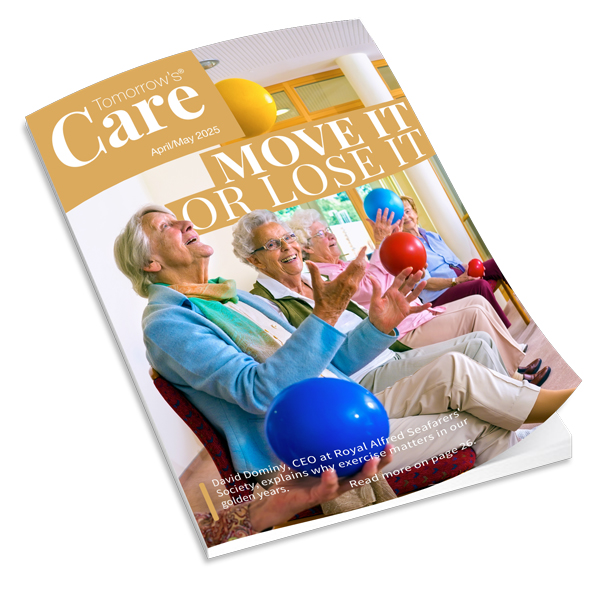Over half of people putting off dementia diagnosis, says Alzheimer’s Society

Published on 17/05/2016
56% of people put off seeking a dementia diagnosis for up to a year or more, with one in three saying they think dementia and memory problems is just 'a part of the ageing process', an Alzheimer’s Society study has shown.
The research also revealed two-thirds of people surveyed felt a diagnosis would mean their life was over.
In light of these statistics Alzheimer’s Society are using Dementia Awareness Week, 15-21 May, to urge people to tackle the condition head on and seek help.
With 225,000 people set to develop dementia this year the dementia charity is warning that a lack of diagnosis is denying many of these people the chance of getting the right treatment and support.
Late diagnoses also mean thousands of people are not able to plan for the future whilst they still have capacity to do so.
The YouGov research also revealed many myths surrounding dementia.
Almost 1 in 4 (24%) thought that people who received a dementia diagnosis would instantly have to stop going out for a walk on their own and almost half (45%) thought they would have to immediately stop driving a car.
58% thought they would personally struggle to join in conversations post-diagnosis and 49% worried people would think they were ‘mad’.
Other common myths revealed in the research include that over half (58%) of people think a dementia diagnosis means no longer enjoying the things they used to, 22% of people fear they would lose their partner or friends.
68% think they would no longer be the same person if they were to be diagnosed with dementia.
The charity also found that almost two thirds (64%) didn’t think that they could seek help and support from a charity when they, or a person close to them, develops dementia.
Jeremy Hughes, Chief Executive of Alzheimer’s Society, said: “Too many people are in the dark about dementia – many feel that a dementia diagnosis means someone is immediately incapable of living a normal life, while myths and misunderstandings continue to contribute to the stigma and isolation that many people will feel.
“This Dementia Awareness Week, we want to reassure people that life doesn’t end when dementia begins.
“We know that dementia is the most feared health condition of our time and there’s no question that it can have a profound and devastating impact on people, their family and friends – but getting a timely diagnosis will enable people with dementia to live as well as possible.
'We want everyone to know that Alzheimer’s Society is here for anyone affected by the condition and there are lots of ways we can help you. It’s time for everyone to confront dementia head on.”
The charity’s study of GPs reveals that people treat physical symptoms very differently from non-physical symptoms.
Half said that if they experienced confusion or problems recalling recent events they would wait until the problem has worsened before visiting their GP, in contrast to just 1% waiting until a physical health condition reached the same serious stage.
60% would visit their GP as soon as they notice a physical health symptom, compared with just 2%for a non-physical health symptom such as memory loss and confusion.
Comedian Rhod Gilbert, who is supporting Dementia Awareness Week, commented: “A dementia diagnosis can be daunting – but the only way to make sure that life doesn’t have to end when dementia begins is by confronting your worries and seeking help.
“I know from personal experience that dementia can be really tough to deal with but I also know it’s vital people worried about the condition go to charities like Alzheimer’s Society for help and support. This way we can all tackle dementia together.”
The research also revealed two-thirds of people surveyed felt a diagnosis would mean their life was over.
In light of these statistics Alzheimer’s Society are using Dementia Awareness Week, 15-21 May, to urge people to tackle the condition head on and seek help.
With 225,000 people set to develop dementia this year the dementia charity is warning that a lack of diagnosis is denying many of these people the chance of getting the right treatment and support.
Late diagnoses also mean thousands of people are not able to plan for the future whilst they still have capacity to do so.
The YouGov research also revealed many myths surrounding dementia.
Almost 1 in 4 (24%) thought that people who received a dementia diagnosis would instantly have to stop going out for a walk on their own and almost half (45%) thought they would have to immediately stop driving a car.
58% thought they would personally struggle to join in conversations post-diagnosis and 49% worried people would think they were ‘mad’.
Other common myths revealed in the research include that over half (58%) of people think a dementia diagnosis means no longer enjoying the things they used to, 22% of people fear they would lose their partner or friends.
68% think they would no longer be the same person if they were to be diagnosed with dementia.
The charity also found that almost two thirds (64%) didn’t think that they could seek help and support from a charity when they, or a person close to them, develops dementia.
Jeremy Hughes, Chief Executive of Alzheimer’s Society, said: “Too many people are in the dark about dementia – many feel that a dementia diagnosis means someone is immediately incapable of living a normal life, while myths and misunderstandings continue to contribute to the stigma and isolation that many people will feel.
“This Dementia Awareness Week, we want to reassure people that life doesn’t end when dementia begins.
“We know that dementia is the most feared health condition of our time and there’s no question that it can have a profound and devastating impact on people, their family and friends – but getting a timely diagnosis will enable people with dementia to live as well as possible.
'We want everyone to know that Alzheimer’s Society is here for anyone affected by the condition and there are lots of ways we can help you. It’s time for everyone to confront dementia head on.”
The charity’s study of GPs reveals that people treat physical symptoms very differently from non-physical symptoms.
Half said that if they experienced confusion or problems recalling recent events they would wait until the problem has worsened before visiting their GP, in contrast to just 1% waiting until a physical health condition reached the same serious stage.
60% would visit their GP as soon as they notice a physical health symptom, compared with just 2%for a non-physical health symptom such as memory loss and confusion.
Comedian Rhod Gilbert, who is supporting Dementia Awareness Week, commented: “A dementia diagnosis can be daunting – but the only way to make sure that life doesn’t have to end when dementia begins is by confronting your worries and seeking help.
“I know from personal experience that dementia can be really tough to deal with but I also know it’s vital people worried about the condition go to charities like Alzheimer’s Society for help and support. This way we can all tackle dementia together.”
Related News
Categories
- CQC ratings
- Care home news
- Care jobs
- Care planning
- Care sector awards
- Care sector events
- Care sector news
- Care staff
- Charity
- Cleaning & Hygiene
- Construction
- Dementia
- Disability
- Entertainment
- Finance
- Fitness
- Food & Drink
- Fundraising
- Furniture
- Health & Safety
- Healthcare
- Hospice & Palliative Care
- Hospitals
- Industry Comment
- Interiors
- Laundry
- Legal
- Leisure
- Medication
- Mental Health
- Mobility
- New appointments
- PPE
- Products
- Property
- Recruitment
- Relationships
- Research
- Safeguarding
- Security
- Services
- Social care
- Sustainability
- Technology
- Training
- Transport
- Uniforms
- Waste
- Wearables

























